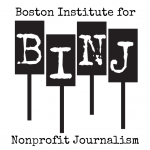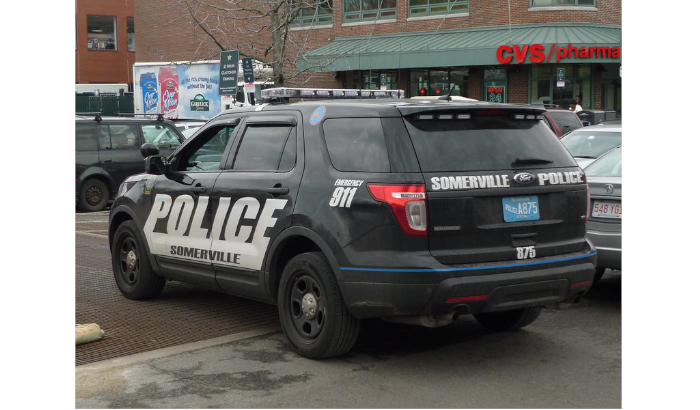With shootings on the rise, councilors debate funding for annual regional policing initiative
A state-funded grant that has been used for many years by the Somerville Police to combat youth violence was subjected to two heated discussions last week, before being approved by the City Council.
The question was whether to accept a $22,692 grant from the Metro Mayors Coalition, with a required match of $7,076 from the City’s Police Overtime Account. The Metropolitan Mayors Coalition is a group of cities and towns in Greater Boston whose leaders exchange information and work on solutions to common problems. Their Shannon Grant Community Safety Initiative specifically targets gang violence.
The City Council’s Finance Committee took up the question last Tuesday, where three of the five committee members voted to recommend accepting the grant. The proposal was brought to the full City Council last Thursday, where some councilors asked the police chief for more information, while others passionately defended the program.
The goal of the Shannon Grant program is “reducing or preventing gun violence in the city,” Acting Police Chief Charles Femino told the Council on Thursday. The grant will fund additional hours for officers to engage with the community, including both the youth and the parents, at their request.
“As we know, we have been experiencing a gun/gang violence issue over the last several years,” Femino said. “We’ve got 15 confirmed shootings this year in the Mystic development and surrounding areas.”
Femino said the additional policing hours would be used in areas that are more prone to violence. “It’s data-driven, not subjectively chosen, so our crime analysis unit is involved. It doesn’t necessarily involve one particular area of the city,” he explained.
After the city submitted its application for the program last fall, Femino has been discussing implementation of the project with Denise Molina Capers, director of the city’s new Racial and Social Justice Department, “who has worked with me to think of different community awareness and prevention programs that are directed toward youth development. She has much more experience in that area,” he said.
The Shannon Grant program contains a variety of initiatives, including case management, community mobilization, education and employment, positive youth development, and suppression of violence or “hot-spot policing.”
Councilor-at-Large Charlotte Kelly, a member of the Finance Committee who voted against accepting the grant, questioned whether the SPD’s proposal focused too much on hot-spot policing.
“There are trickle-down effects when we increase policing. There’s statistical analysis that the number of misdemeanors will increase, which is not necessarily violent crime, but that is pushing people into the carceral system,” she said.
Kelly asked the police chief what proportion of the 372 hours funded by the grant would be dedicated to hot-spot policing versus the other tactics.
Femino replied, “If there’s less violence in the city, then obviously we can spend less hours doing hot-spot policing. If there’s a spike in gun violence during the summer months, it may be that I have to put additional hours toward that. But certainly the bulk of hours, my intention is to [use them for] community prevention, community awareness programs for both our youth and our parents that are requesting it. The community is requesting that we have those types of programs.”
Kelly concluded that she would vote against the grant primarily because of her concern with the hot-spot patrols, which she said “overwhelmingly end up surveilling and policing our communities more, putting more and more people at risk of ending up in the carceral system.”
City Council President Matthew McLaughlin, who represents Ward 1, responded with a fervent defense of the program. “I’m gonna make a big speech about this $20,000 grant,” he said.
“This is something that really matters to me, and I do want to talk about how this has affected my life personally. I grew up in this city, grew up where kids gathered together, as gangs or whatever you want to call them. Some people did things a lot worse than others. Some people were just hanging out. And I remember Lexington Park, where I got my political start, was organizing youths to fight displacement, because they were frustrated with displacement and gentrification, and they took it out in an irresponsible way, with violence, with vandalism, things like this. And I helped organize those people to respond in a more productive way. And those kids were subject to police issues. People called the cops on them. They had their belongings shaken out in the middle of the park. People were harassed. They were put on gang watch lists.
“You know, people blame the police, but who were the people calling the police on these people, and who were the people who approved the anti-gang ordinance to begin with? Those were politicians who made that happen. That happened to me, so I definitely appreciate where people are coming from with their concerns. But that moment was a defining moment in my life, where we decided to work with the city, and work with police, and work with people from around the community, to address things in a productive way. We spoke out against these injustices, and there was also at the same time, another councilor wanted to put in an order to not allow teenagers at playgrounds, which was just ridiculous. So it shows you the attitude that was going on at that time, and we were the activists addressing police issues back then. And we actually ended up working with the police, and to the great credit of our former mayor, I think he actually took this to heart, and made a lot of changes in the city. And one of those changes was the Shannon Grant, which came after all these issues,” he said.
“I’ve been a part of the dialogue sessions, the walk and talks with police, I’ve been a part of the basketball tournaments. I’ve seen the productive change come from this grant. And I also do value the hot spots, because these hot spots that people have defined as targeting communities, I view as prioritizing communities,” McLaughlin said.
“So I support this grant,” he concluded. “I think rejecting the $20,000-plus will really do very little, but accepting it might actually save a life, and might actually catch somebody who’s committing violence in this community, and stop them from committing violence, and it may actually get some kids who may go down that road to go in the right direction and to actually turn their life around, which is something that I’ve seen personally. I’ve seen kids going down the wrong road, who’ve done an about-face, and that’s why I support this.”
Councilor-at-Large Kristen Strezo was the last councilor to speak, and she reported that residents living in so-called hot spots approve of the Shannon Grant program.
“I will be supporting this because I have heard from constituents in these neighborhoods that they want this. It has impacted their lives,” she said. “We spent all last summer talking with residents and talking with St. Polycarp and the police department and residents about the gang violence and how terrified so many residents in these neighborhoods [are]. … Might I remind our colleagues that there was a stray bullet that did go through a child’s bedroom just a couple months ago.”
She continued, “Listening to our constituents, not telling them what they want, but listening to our constituents, makes a deep impact. And I hear from the children, and have spent most of my springtime trying to help residents feel safe in our community. And that is providing those safe spaces in the out-of-school time when they don’t want to go home into the Mystics because they’re afraid of gang violence.”
Strezo ended by issuing a challenge to her colleagues who were opposed to the grant. “I am challenging you in the summertime, all summer long, on the weekends, grab a tent and your camping gear, and I want you to camp out in the Mystics, from Friday night when residents are afraid to take out their garbage past 6 p.m. on Friday night, until Sunday until about 1 a.m. And when you start hearing the gunshots, let’s have a conversation.”
In the end, six councilors voted in favor, three voted against, and two were absent. In addition to Kelly, the other No votes were Councilor at Large Willie Burnley Jr. and Ward 2 Councilor J.T. Scott. Ward 5 Councilor Beatriz Gomez Mouakad and Ward 6 Councilor Lance Davis were absent. The grant was accepted and the program will be implemented again this summer.
Photo credit: Somerville PD Ford Police Interceptor Utility by Jason Lawrence. CC-BY 2.0.
This article is syndicated by the Somerville Wire municipal news service of the Somerville News Garden project of the Boston Institute for Nonprofit Journalism.
All Somerville Wire articles may be republished by community news outlets free of charge with permission and by larger commercial news outlets for a fee. Republication requests and all other inquiries should be directed to somervillewire@binjonline.org. Somerville Wire articles are also syndicated by BINJ’s MassWire state news service at masswire.news.
SUBSCRIBE TO THE SOMERVILLE WIRE EMAIL NEWSLETTER: https://eepurl.com/hpBYPv
Check out all our social media here: https://linktr.ee/SomervilleWire.
Linda Pinkow is a reporter for the Somerville Wire. She is also a development consultant for the Boston Institute for Nonprofit Journalism.









